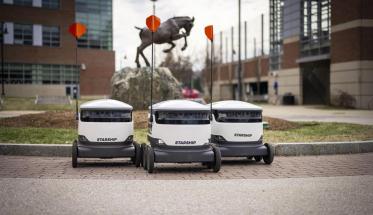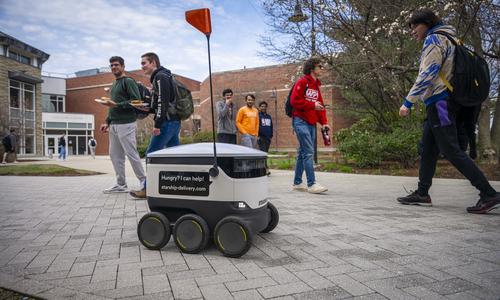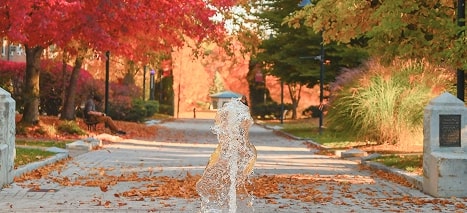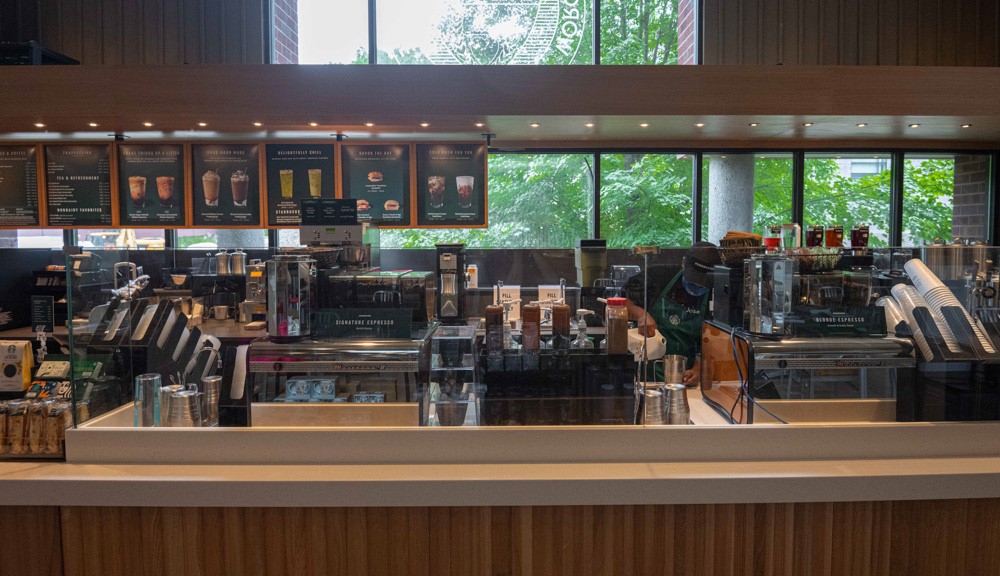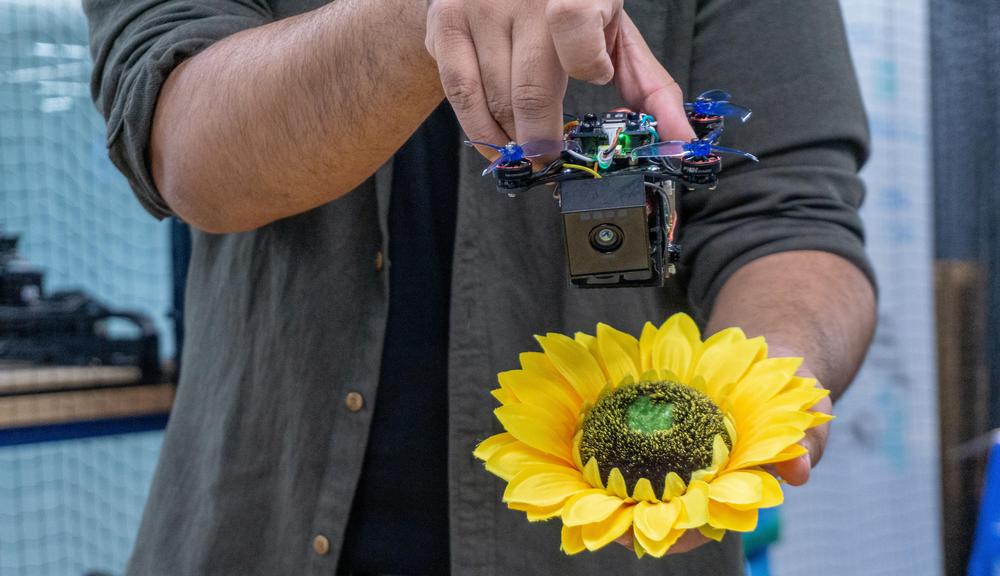Robots are not an uncommon sight at Worcester Polytechnic Institute (WPI), but a new fleet is causing some special excitement as Starship Technologies rolled out its on-campus robot food delivery service today. The cooler-sized robots will also venture onto a select number of surrounding city sidewalks to meet off-campus student demand.
Starship’s fleet of 12 autonomous, on-demand robots will deliver from several specialty-focused on-campus eateries including Innovation Kitchen, Joy Empanadas, and Halal Shack that serve WPI’s more than 7,000 students, staff, and faculty. The robots will deliver on campus and into the surrounding neighborhood, within an area bordered by Park Avenue, Highland Street, Tuckerman Street, and Salisbury Street.
“I can’t think of a better place to have robots serving students than at WPI,” said Emily Perlow, associate dean of students at WPI. “The opportunity to partner with Starship Robots will help make the WPI dining experience more accessible and meet student, faculty, and staff where they are.”
The robots use a combination of sophisticated machine learning, artificial intelligence and sensors to travel on sidewalks and navigate around obstacles. Their computer vision-based navigation helps the robots to map their environment to the nearest inch.
